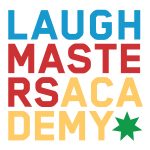Why Standups Should Embrace, Not Revile, Improv
“I hate improv.”
Hang around standup comedians enough and you will hear it. This may be confusing. Many don’t know there’s a difference between the comics with microphones and the ones who go mic-less, tagging in and out of scenes in a black box theatre. It’s understandable. After all, many people think all standup is improvised; that Bigger & Blacker was just what happened to be on Chris Rock’s mind that night. It doesn’t help that the largest chain of standup venues is called “The Improv.” Nor that when an improvisor like Jack McBrayer becomes famous, the media refers to him as “Comedian Jack McBrayer.” But there are two camps in the chuckle trade, and some standups love to deride their comedy cousins.
They ridicule improv groups doing peppy warm-up exercises backstage. They make fun of their punny team names: “Oh you were in Mel Taco? I was in Jorts Center!” They imitate the cruise ship Fun Director delivery of an improvisor asking a crowd for suggestions. They mock improv’s endless classes and hefty price tag. “I made it from Level 3B-1 to Level 3C in six months and it only cost $4,000!”
I asked Matt Besser, who is both a standup and a founder of the UCB improv theaters, why improv turns some standups off. “Many improv groups give off the same positive annoying vibe that I associate with Christian Young Life groups with shows that more resemble children playing than a comedy performance.”
According to Besser, it goes both ways. “On the other hand, improvisers will view standups as being negative and more competitive about their comedy. I think it’s pretty stupid to write off an entire genre of anything. It’s one thing to say ‘I don’t like country music.’ But it’s pretty narrow minded to say ‘All country music sucks.’ Of course that being said, all short-form improv sucks.”
Doing both standup and improv in the 1990s, I remember the animosity between the two groups. In Chicago, improv houses dominated the comedy conversation. Second City improvisers like Bill Murray, Steve Carrell, Stephen Colbert, Tina Fey, Amy Poehler, and Chris Farley became superstars long before anyone heard of T.J. Miller, Hannibal Buress, or Kumail Nanjiani.
Improv was king and the improvisors knew it. To them, improv was a revolutionary group-mind experiment and standup was dead. Standup was someone making trite observations about Gatorade in a blazer, the exact thing improv was here to replace. “Whatever you do, don’t go up there like a standupand tell jokes,” I was told by many an improv teacher. They meant “don’t do that in an improv scene,” but some in the improv community took that to mean “don’t do that ever.” It hurt to be told that this art form I loved was the comedy equivalent of hair metal. Inside, I was afraid they were right. The Chicago press seemed to agree as they fawned over even mediocre Second City reviews, ignoring standup completely.
What made it harder to take is that a lot of standups thought they had a tougher gig. They had to get three laughs a minute from strangers or be judged a failure. It seemed like the improv kids were graded on a curve. The audience, impressed that the scenes were all improvised, gave up laughs more easily. Improvisers also often performed for supportive fellow improvisors instead of bars full of randoms.
“Standups tend to be fiercely competitive and fiercely insecure. That’s enough of a reason for some standups to hate improv,” explains standup Jared Logan. “But there’s also the fundamental difference in worldview: improvisers want to be part of something and standups want to be alone. Joining a group seems stupid or impossible to many standups.” That distrust leads to a dismissal of the whole form.
That is dangerous. “I hate improv” is a self-destructive position for a standup to take. We don’t get to hate improv. If you achieve any level of success as a standup, you will have to improvise constantly.
Keep Reading at SplitSider
John Roy is a comedian based in Los Angeles. His appearances include Conan, @midnight, and The Tonight Show. Follow him on Twitter at @johnroycomic.
